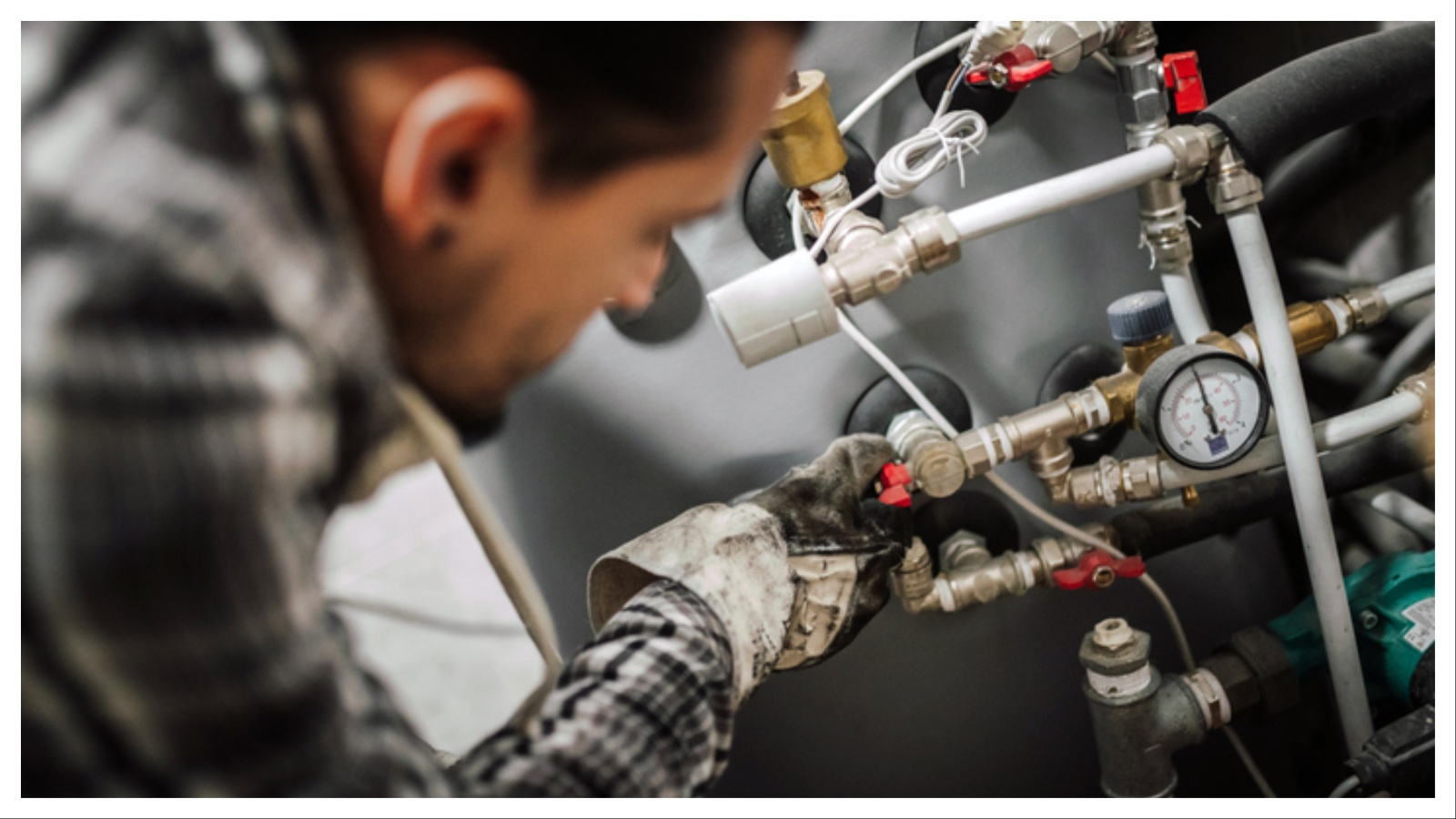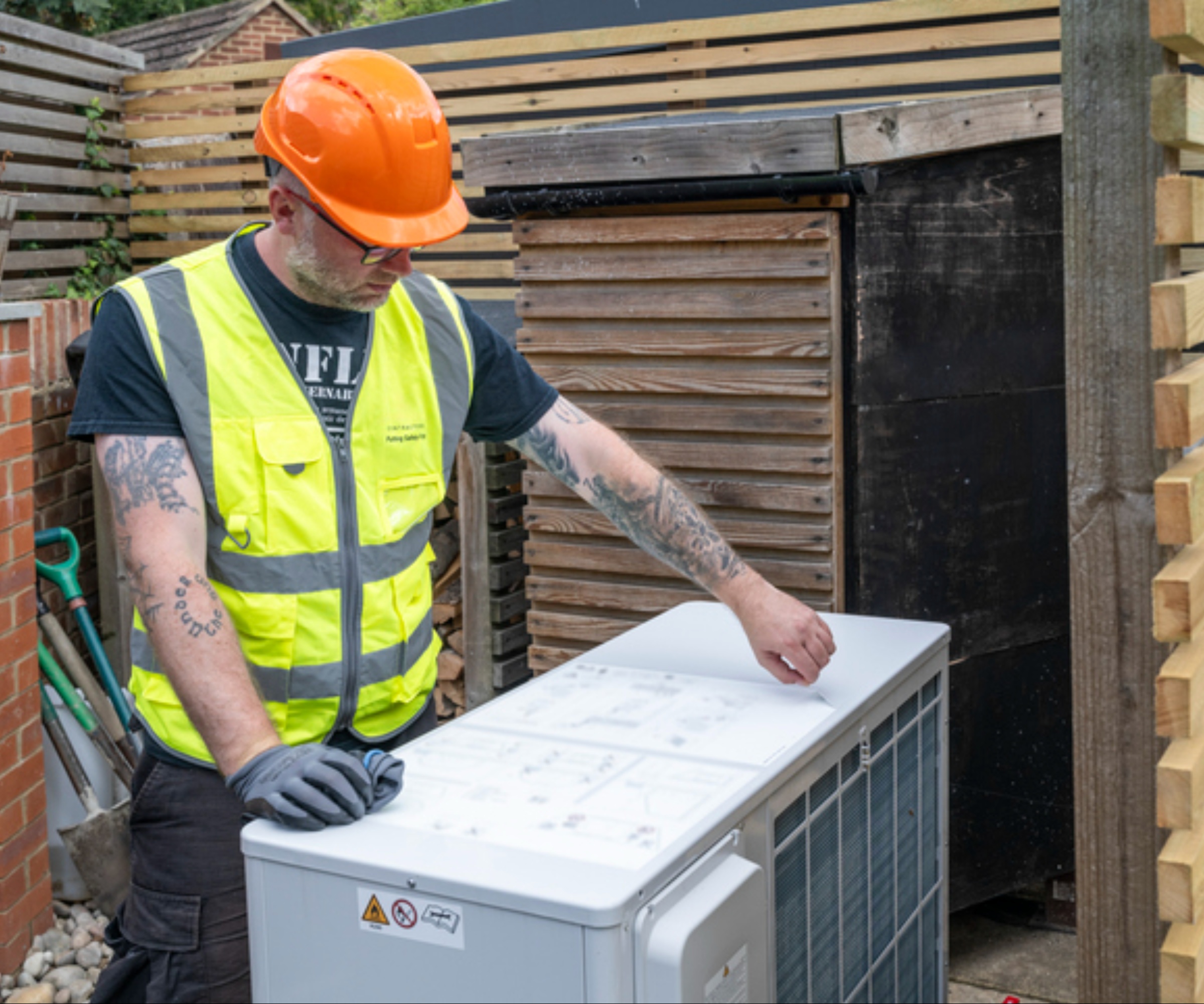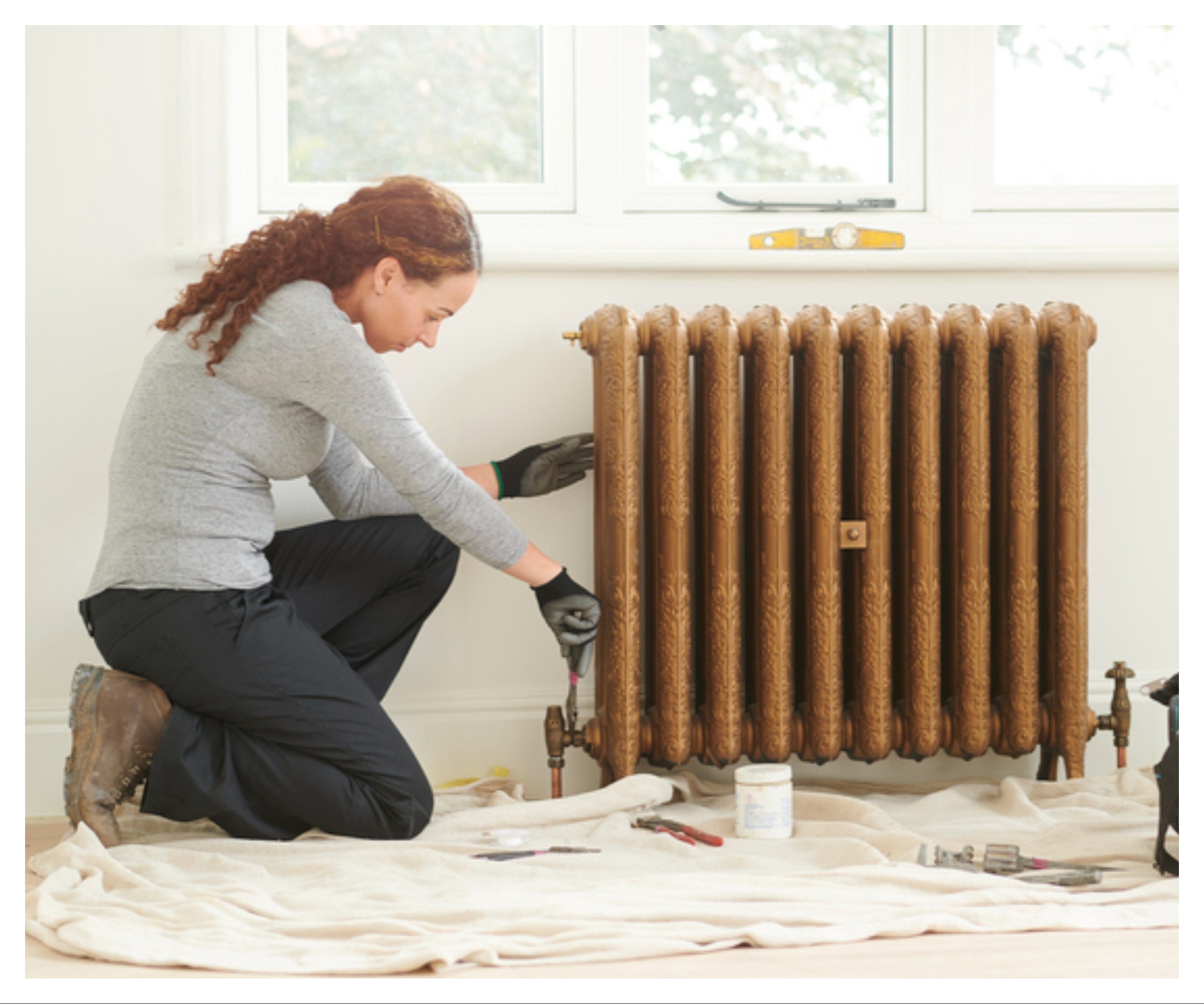How long does central heating last?
Installing central heating is a major investment and different systems are more reliable than others. Here we take a look at how long it lasts, from heat source to emitters

The most important considerations when installing or replacing a central heating system are usually ensuring the property is comfortably heated and keeping running costs down.
However, longevity is another key factor to be aware of as a new central heating system in the UK generally costs between £3,500 and £7,000, while a new boiler will cost between £1,000 and £2,500. Renovators will therefore want it to stay operational for as long as possible.
Researching how long components and systems will last before needing to be replaced will help you make an informed decision on what central heating is right for your property. We reached out to Ryan Maskell, Managing Director of Mask Plumbing Solutions, and Rob Nezard, Managing Director and Founder of UK Radiators, for their insight into the lifespan of central heating systems.
Heat sources
How long does a boiler last?
Boilers can differ widely in terms of their quality and longevity and it’s important to be aware of this when you’re searching for a new model for your home. Saving money in the short term by opting for the cheapest model may ultimately end up costing you more if the boiler you choose isn’t made to a high standard.
Ryan said: "Generally, a properly maintained boiler—whether gas, electric, or oil—has a lifespan of 10 to 15 years. Combi boilers from reliable brands like Vaillant and Worcester Bosch can often reach the 15-year mark when looked after. Smaller units may show wear sooner, especially without regular maintenance."
An oil boiler can last between 20 and 30 years, while electric boilers will last between 15 and 25 years as they don’t typically need as much maintenance as gas boilers. You can expect modern combi boilers to last for around 15 years, or potentially even longer if you get a good quality model and service it regularly.
Rob adds: "Brands like Worcester, Bosch and Valliant all offer quality products with long lifespans."
Lastly, it’s important to pay attention to the warranties offered with boilers and consider an extended warranty.

Ryan Maskell's journey in the plumbing industry began as an apprentice, where he developed a deep appreciation for the intricacies of plumbing systems. Now with over a decade of experience under his belt, Ryan has gone on to hold the position of Managing Director of Mask Plumbing Solutions, leading a team of skilled professionals in providing plumbing services to residential and commercial customers across the Midlands.
How long does a heat pump last?
Modern heat pumps can last as long as 20 to 25 years. Air source heat pumps last 15-20 years, while ground source types can last up to 25 years with good maintenance. Ryan said: "I've noticed brands such as Mitsubishi and Daikin perform well when installed properly. However, their efficiency might decline as they near the end of their lifespan, so keeping an eye on performance is key."
Although the initial cost can be considerably more than a gas boiler, their longevity and the money you can claim from government incentives like the boiler upgrade scheme could make the financial outlay worthwhile.
A heat pump’s moving parts, such as the compressor, can become worn out over time and you will have to balance the cost of a new compressor versus the cost of replacing a heat pump.
Many heat pump manufacturers provide warranties where parts are replaced for free. You should check the details with the manufacturer when gathering quotes.

How long do other heat sources last?
Biomass boilers, which use natural materials like wood, straw, agricultural waste, or manure as fuel, will typically last 20 years. However, biomass boilers require regular upkeep. "Biomass boilers are similar to traditional gas boilers, with an expected lifespan of about 20 years, but they require diligent maintenance due to their intricacies," Ryan says.
Solar thermal panels, which can be used in combination with other renewable technologies - such as air source heat pumps - to reduce reliance on the grid, can last for 20 years or more.
Storage heaters typically have 10 to 15 years of optimal service but after this time can become less efficient and more costly to service.
Water cylinders
Hot water cylinders typically last between 10 and 20 years, depending on the contents and pH neutrality of the water that runs through them. Some brands of hot water cylinders can even last around 40 to 50 years if they are provided with the optimal amount of maintenance. However, these are rare cases.
Oil tanks and oil lines
Plastic oil tanks last 15-20 years, while steel tanks last 30, are more resistant to theft, and can be easily recycled at end of life.
Oil lines may need replacing every 10 to 15 years because of corrosion concerns. Fuel supply pipes should be inspected regularly, generally every five years, and any damage, deterioration, or leaks from joints should be repaired at the earliest opportunity. Fuel supply pipework that is hidden or inaccessible should be pressure tested at least every five years.
Plumbing
How long do plastic push-fit pipes last?
Quicker, easier, and cheaper to fit than metal pipes, plastic push pipes can last a century when they’re designed, manufactured, and installed to a high standard, according to studies.
The material the pipes are made from can affect their lifespan and some manufacturers offer warranties of up to 50 years.
How long do copper pipes last?
Copper pipes are hardy and resistant to most forms of corrosion. M-type piping, the thinnest residential copper piping variety, can last around 20-50 years before it needs to be replaced.
L-type copper pipes, such as the Wednesbury Copper Compression Pipe sold by B&Q, are of medium thickness and can last for 50-100 years. K-type pipes are the thickest and can last for more than 100 years.
Maintaining an optimal environment, such as controlling the water pressure and doing regular maintenance, will prolong the life of a pipe.
Heat emitters

How long do radiators last?
Modern radiators have an average lifespan of 10 to 15 years, but keep in mind that even if a radiator seems to work perfectly after 15 years of service, it has likely developed problems such as internal corrosion. As ever, regular maintenance is key. Steel radiators, like the Heilmetz DoubleColumn radiator from Amazon, may have longer guarantees, with quality manufacturers offering as much as 25 years’ peace of mind. Rob adds: "The lifespan of a radiator depends on quality. For steel radiators, some will come with a guarantee of only five years, ours on the other hand are guaranteed for 15 years. Other materials such as stainless steel may have longer guarantees such as 25 years."
How long do other heat emitters last?
Infrared wallpaper usually comes with a factory warranty of around 15 years, but some manufacturers claim it will last as long as the home exists with no maintenance.

Rob has been in the heating industry since 2010, and has over 13 years of hands-on experience in online retail.
His documentary film - 'The Lies Costing the UK Billions' claims millions of UK radiators are being sold with inflated efficiency ratings.
In the documentary, Mr Nezard purchases five radiators from different popular UK websites and has them tested, revealing the heat outputs were overstated on retailer websites by 25 to 38 per cent.
How long does underfloor heating last?
Electric systems last around 25 years, while wet systems, which pump warm water by using piping under the floor, with manifolds can last 50 years with proper maintenance.
Underfloor heating from the last century can be retrofitted with, for example, a modern boiler or a heat pump, but the process can be complex and it's important to consider the age and construction of the home. Rob adds: "
Electric systems last around 25 years, while wet systems with manifolds can last 50 years with proper maintenance."
If your central heating needs replacing, an excellent place to our start is our guide on retrofitting central heating, which lays out the basics simply and clearly.
And don't forget to take central heating controls into account, as this rapidly evolving technology can enhance the energy efficiency of your home and reduce your heating bills.
Get the Homebuilding & Renovating Newsletter
Bring your dream home to life with expert advice, how to guides and design inspiration. Sign up for our newsletter and get two free tickets to a Homebuilding & Renovating Show near you.
Sam is based in Coventry and has been a news reporter for nearly 20 years. His work has featured in the Mirror, The Sun, MailOnline, the Independent, and news outlets throughout the world. As a copywriter, he has written for clients as diverse as Saint-Gobain, Michelin, Halfords Autocentre, Great British Heating, and Irwin Industrial Tools. During the pandemic, he converted a van into a mini-camper and is currently planning to convert his shed into an office and Star Wars shrine.

